Automotive

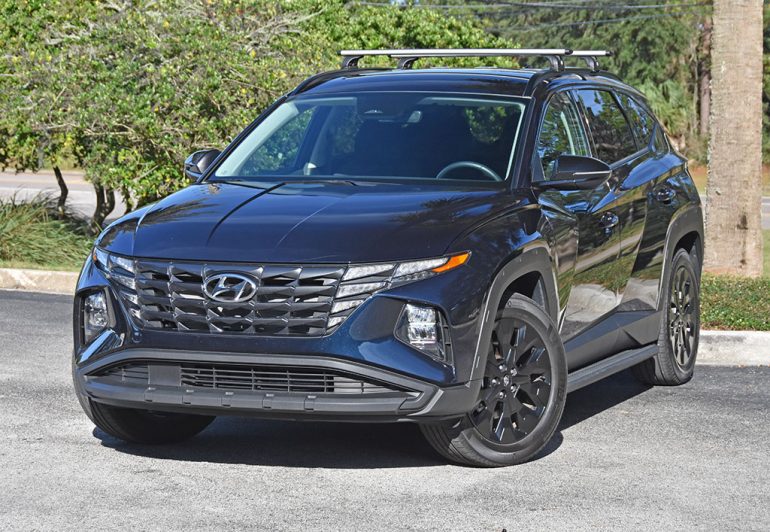
The Hyundai Tucson has proven to be a worthy contender within the mainstream compact crossover segment as its respectable sales figures will reiterate. Having experienced many of the trim levels of the new Tucson from its recent full redesign for the 2022 model year, I fully understand why you see so many on the road.
The new 2022 Hyundai Tucson is a decent vehicle out on the road with a comfy ride that’s easy to navigate. The one downfall remains to be its powertrain’s power output being a little sluggish from the onset. However, once things get moving and you become adapted to how the Tucson performs without having high expectations, things are rather agreeable for most and the purpose such a vehicle serves.
See Also: 2022 Hyundai Tucson Limited AWD Review & Test Drive
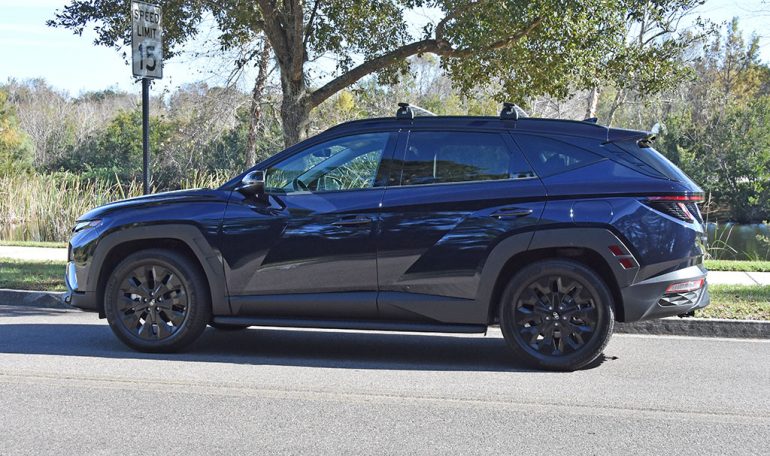
Powering the Hyundai Tucson XRT AWD and all other non-hybrid trims, is a 2.5-liter 4-cylinder with 187 horsepower and 178 lb-ft of torque. The engine gets mated to an 8-speed automatic transmission that does well to adapt to the engine’s power band and provide a smooth power delivery even if it’s not that much to play with. Zero to 60 mph takes about 8.8 seconds, which is just enough grunt to keep most who are far outside of the enthusiast world satisfied.
Fuel consumption is mostly consistent averaging about 26.5 mpg during my time with the Tucson XRT AWD. The EPA estimates are 26 mpg combined, 24 mpg city, and 29 mpg highway.
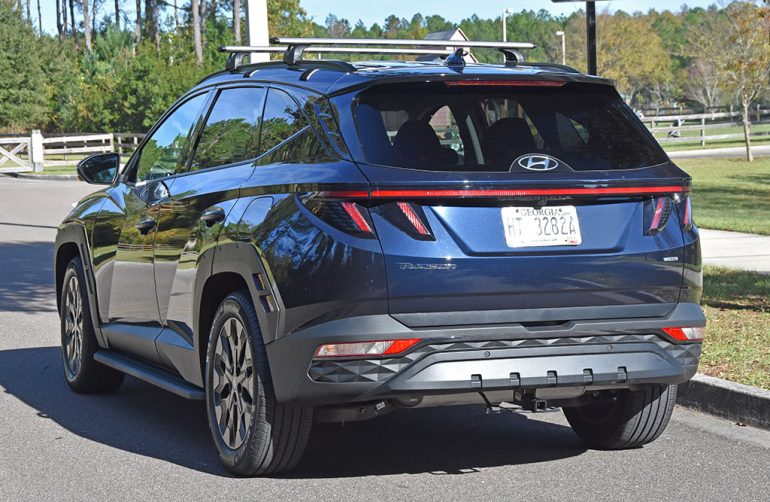
With the Tucson XRT trim that I have this week, there’s a unique theme that presents itself as more of an off-roader but there’s not much to benefit for real off-roading capabilities from the more rugged look featuring a tow hitch, unique 19-inch black-painted wheels, black exterior accents, unique bumpers, roof rails that add a bit of wind noise at highway speeds, and mostly useless sidesteps that get in the way more than they help your entry and exit. Otherwise, the Tucson XRT AWD fits the part of someone who has an active lifestyle and wants to use their crossover for outdoor adventures through the ease of mounting things on the roof or towing items up to 2,000 pounds.
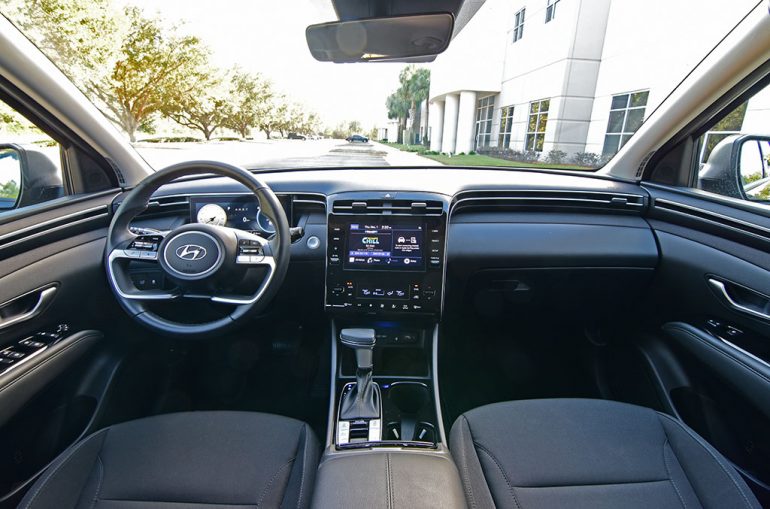
One of the major aspects that elevate the Hyundai Tucson is its decent list of standard features and amenities, such as a 10.25-inch digital gauge cluster and the standard 8-inch infotainment touchscreen that has an easy-to-use interface and combines wireless Apple CarPlay and Android Auto integration. Additionally, the Hyundai Tucson brings several standard active safety features to the table, such as forward collision warning/mitigation, lane keeping assist, and a driver attention warning. Even at the SEL trim level, which is just one step from the base SE trim you get to enjoy blind-spot monitors, adaptive cruise control, heated front seats, power-adjustable driver’s seat, and the proximity keyless entry with push-button start, which are all included in my Tucson XRT AWD test vehicle.
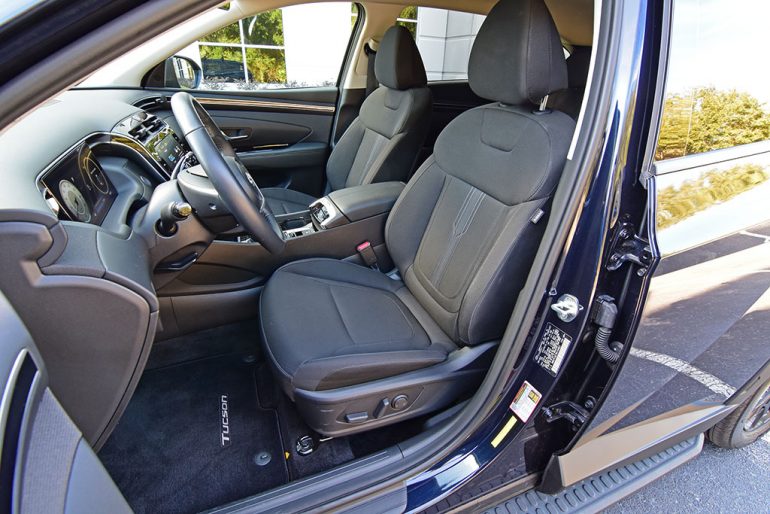
The interior accommodations are good where there’s welcomed soft-touch surfaces throughout the upper dashboard along with comfy cloth seating areas that are larger than you expect out of a compact crossover. Even the rear seating areas are welcoming for a couple of adults and open the decent cargo area through the power liftgate to more space by folding the 60/40-split seat backs.
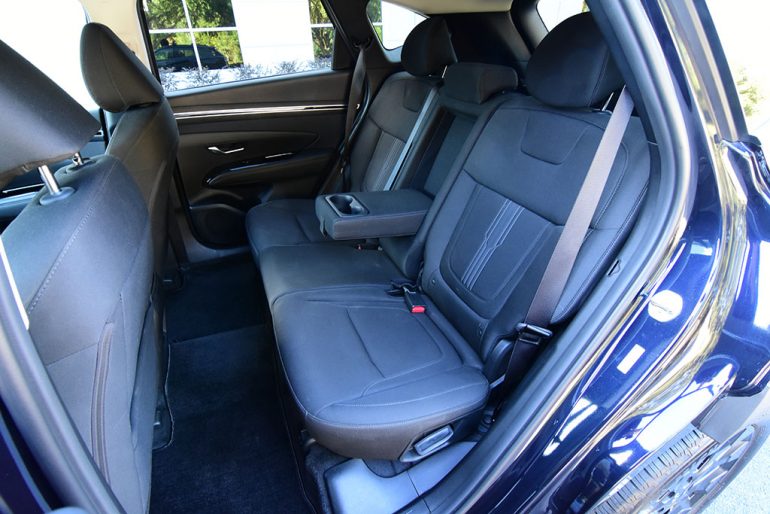
There’s a lot to enjoy in the new Hyundai Tucson, which I’ve covered extensively through reviews of many trim variations and in a review of the new Tucson Hybrid and Plug-in Hybrid.
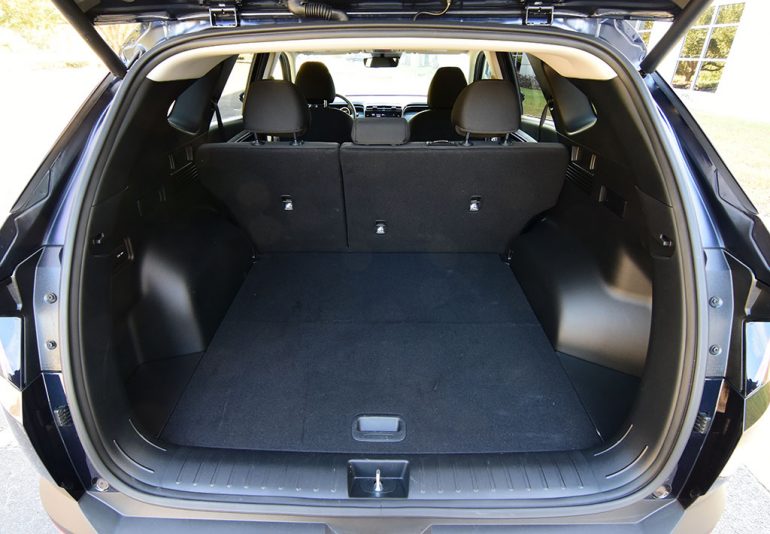
The new Hyundai Tucson remains to be an attractive offering with its starting price for the base SE model landing at just $25,350 before any fees. My mid-level Tucson XRT AWD test vehicle comes in at $34,840, which includes an inland and freight charge of $1,295.




More Stories
How to Join Nissan CVT Lawsuit Fast
Latest Nissan CVT Settlement Update
The Future of Electric Cars: What to Expect by 2030